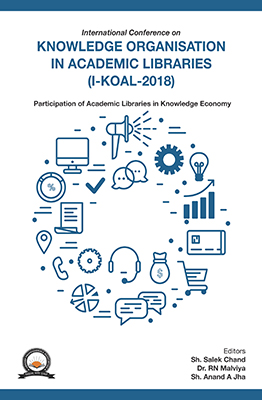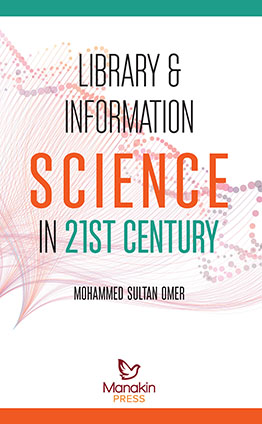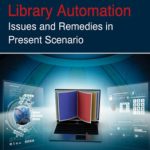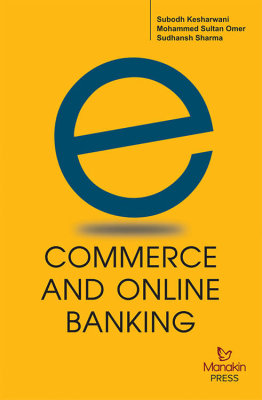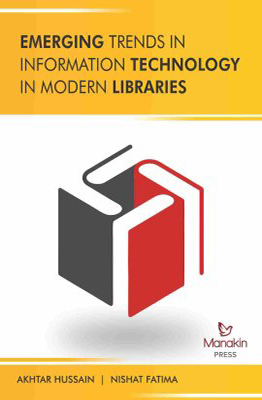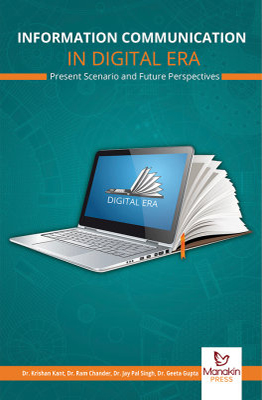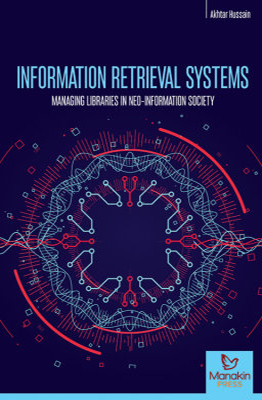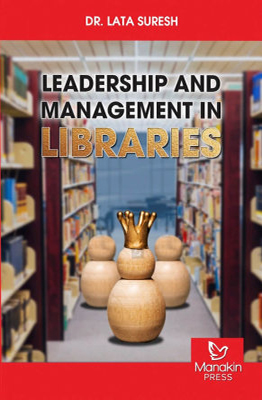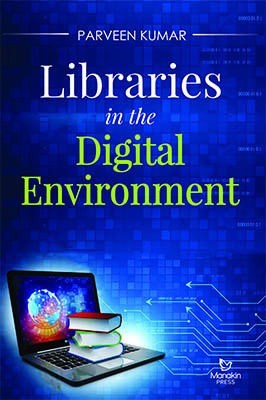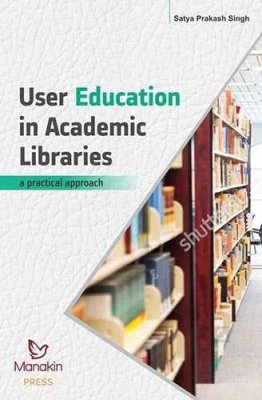Library & Information Science in 21st Century
₹595.00
 Mohammed Sultan Omer | Category: Library & Information Science
Mohammed Sultan Omer | Category: Library & Information Science
Binding Type: Paperback Binding
Book Details
ISBN: 9789386677594
YOP: 2017
Pages: 197
Order also on
Knowledge is the most vital factor in the development and growth of individuals, institutions and thereby also of a nation. The present century has seen an exponential growth in knowledge: both in the way it is produced and the way it is shared. As librarians are trained in searching, acquiring, selecting, organizing, preserving and disseminating information, it was long presumed that knowledge management is their domain. The growth of information management therefore has become a key concern of librarians and libraries have had to develop their resource access and sharing strategies. The most important feature of this book is that it tries very successfully to share ways to achieve what has been stated above through its very well researched and written papers on Internet, RFID technology, Digital Library and Library automation. Papers on e-resources, copyright, library consortium etc. are also few of the outstanding features of this book. The papers presented in this book will be helpful to Library science students and Professionals by providing insights about knowledge handling and its seamless dissemination.
1. Perception of Semantic Web Technologies in Libraries
2. Rage Against Machines in the Digital Environment: Attitudes of Librarians Towards Technology
3. Plagiarism: Causes, Effects and Prevention
4. Comparative Features of Integrated Library Management Software Systems: A Study
5. Library Automation Features and Implementation: An Overview
6. Digital Libraries: A Comprehensive Study
7. Library Automation: Issues and Challenges
8. Libraries in the Digital Age
9. The Role of Digital Library in Present Scenario
10. Skills for the LIS Professionals in ICT Environment
11. Application of Information and Communication Technology in Academic Library: An Overview
12. ICT an Essential Tool for Library Automation
13. Importance and Usage of Internet for Library and Information Professionals
14. Need and Importance of Internet in Resource Sharing
15. Use of Mobile Technology as a New Emerging Phase in Automated Academic Libraries: An Overview
16. RFID: A Case Study
17. Use of RFID Technology in Libraries, its Components and Benefits
18. Library Consortia in India: A Greater Access to the Library Resources
19. Library Consortium in India: An Overview
20. The Concept of E-Consortium: In Indian Perspective
21. E-Resources: As Revolutionize Instrument in Present Scenario
22. Study on Cloud-Based Mass Data Storage of Libraries
23. Zotero: A Reference Management Software
24. Collection Development of Academic Libraries in ICT Based Environment: Issues and Challenges 151-154
25. Models of Information Seeking Behaviour
26. Transmuting Libraries in Electronic Environment
27. Role of Library Personnel in New Digital Environment
28. Role of Total Quality Management in Academic Library
29. Necessity of Multilingual Supportive Functional Model to Effective Online Information Seeking for Academicians
30. Challenges and Issues: Migration to Open Source Software
31. Internationalization and Curriculum Development Programmes of Library and Information Science Education
Knowledge is the most vital factor in the development and growth of individuals, institutions and thereby also of a nation. The present century has seen an exponential growth in knowledge: both in the way it is produced and the way it is shared. As librarians are trained in searching, acquiring, selecting, organizing, preserving and disseminating information, it was long presumed that knowledge management is their domain. The growth of information management therefore has become a key concern of librarians and libraries have had to develop their resource access and sharing strategies. The most important feature of this book is that it tries very successfully to share ways to achieve what has been stated above through its very well researched and written papers on Internet, RFID technology, Digital Library and Library automation. Papers on e-resources, copyright, library consortium etc. are also few of the outstanding features of this book. The papers presented in this book will be helpful to Library science students and Professionals by providing insights about knowledge handling and its seamless dissemination.
1. Perception of Semantic Web Technologies in Libraries
2. Rage Against Machines in the Digital Environment: Attitudes of Librarians Towards Technology
3. Plagiarism: Causes, Effects and Prevention
4. Comparative Features of Integrated Library Management Software Systems: A Study
5. Library Automation Features and Implementation: An Overview
6. Digital Libraries: A Comprehensive Study
7. Library Automation: Issues and Challenges
8. Libraries in the Digital Age
9. The Role of Digital Library in Present Scenario
10. Skills for the LIS Professionals in ICT Environment
11. Application of Information and Communication Technology in Academic Library: An Overview
12. ICT an Essential Tool for Library Automation
13. Importance and Usage of Internet for Library and Information Professionals
14. Need and Importance of Internet in Resource Sharing
15. Use of Mobile Technology as a New Emerging Phase in Automated Academic Libraries: An Overview
16. RFID: A Case Study
17. Use of RFID Technology in Libraries, its Components and Benefits
18. Library Consortia in India: A Greater Access to the Library Resources
19. Library Consortium in India: An Overview
20. The Concept of E-Consortium: In Indian Perspective
21. E-Resources: As Revolutionize Instrument in Present Scenario
22. Study on Cloud-Based Mass Data Storage of Libraries
23. Zotero: A Reference Management Software
24. Collection Development of Academic Libraries in ICT Based Environment: Issues and Challenges 151-154
25. Models of Information Seeking Behaviour
26. Transmuting Libraries in Electronic Environment
27. Role of Library Personnel in New Digital Environment
28. Role of Total Quality Management in Academic Library
29. Necessity of Multilingual Supportive Functional Model to Effective Online Information Seeking for Academicians
30. Challenges and Issues: Migration to Open Source Software
31. Internationalization and Curriculum Development Programmes of Library and Information Science Education
| Weight | 0.31 kg |
|---|---|
| Dimensions | 23.5 × 15.6 × 0.9 cm |
| yop |
2017 |
| subject-category |
Library & Information Science |
| isbn |
9789386677594 |
Related products
